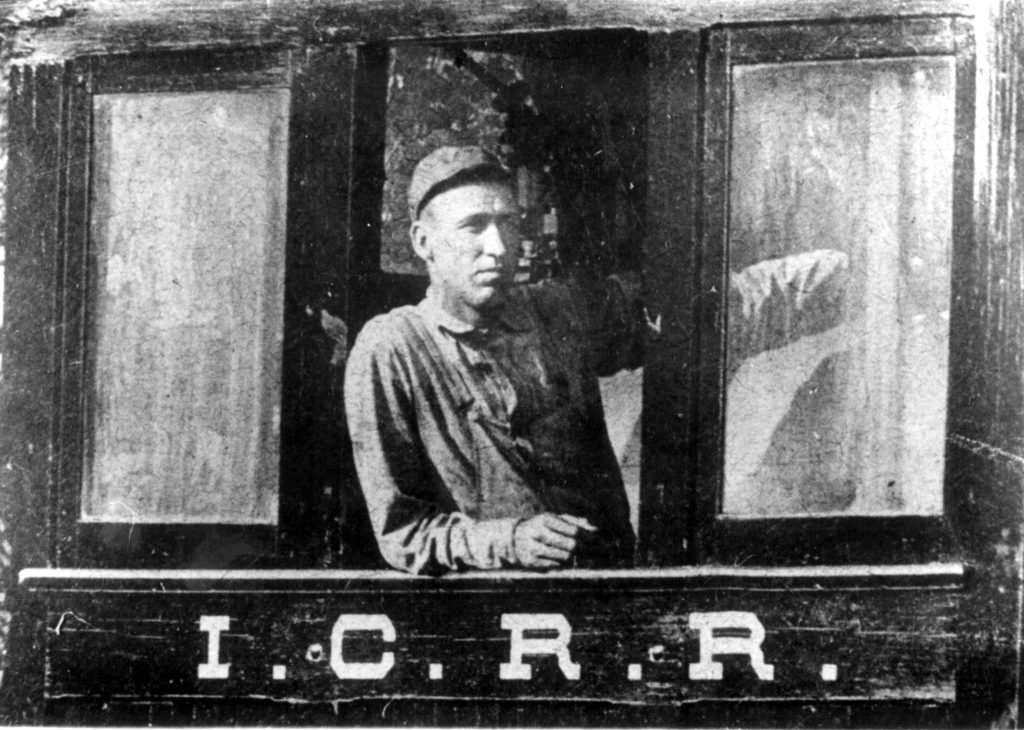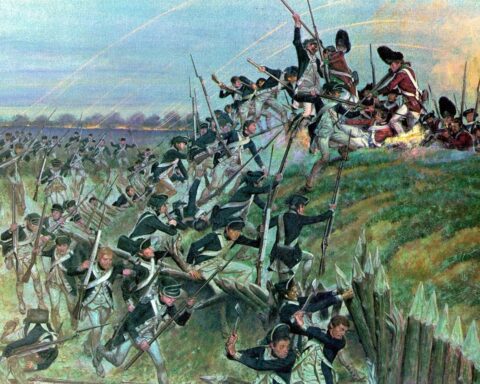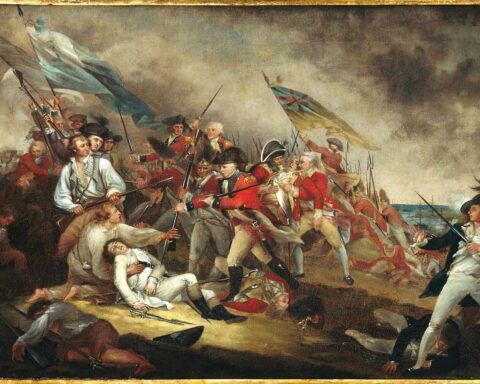Editor’s Note: The following is excerpted from Young’s Civil Government, a civics primer for home and school use published in 1848.
“The grand object of civil government is to secure to the members of a community the free enjoyment of their rights. A right is the just claim or lawful title which we have to any thing. Hence we say, a person has a right to what he has earned by his labor, or bought with his money. Having thus acquired it, it is lawfully and justly his own, and no other person has a right to it.
We have a right also to do things. We have a right to go where we please, and to act as we please, if by so doing we do not trespass upon the rights of others. For all men in civil society have the same natural rights, and no one has a right to disturb others in the enjoyment of their rights.
The being free to enjoy what belongs to us, or to do as we please, is called liberty. The words, right and liberty, however, have not the same meaning. We may have a right to a thing when we have not the liberty of enjoying or of using it. John has a pencil which is justly his own; but James takes it from him by force. John’s liberty to enjoy the use of his pencil is lost, but his right to it remains. And James has no right to the pencil, though he enjoys the use of it.
All laws ought to be so made as to secure to men the liberty to enjoy and exercise their natural rights. Natural rights are those to which we are entitled, rights with which we are born. Every person is born with a right to live, and freely to enjoy the fruits of his labor and whatsoever is justly his own. Hence, liberty itself is a natural right; that is, it is ours by nature, or by birth, and cannot be rightfully taken from us: wherefore it is also called inalienable. But we may forfeit our natural rights by crime. By stealing, a man loses his right to liberty for a time, and is justly imprisoned. If he commits murder, he forfeits his right to life, and lawfully suffers death.
We sometimes hear of civil rights and civil liberty. Wherein do civil rights and liberty differ from those which are called natural? Rights and liberty may be both natural and civil. Speaking of them as being our by nature, or by birth, we call them natural; when they are spoken of as being secured to us by civil government and laws, they are called civil. John’s right to his pencil, being secured to him by the laws of civil society, is a civil right. It is at the same time a natural right, because, by the law of nature, he is born with a right to the free use of his property.
The law of nature is so called, because it is a perfect rule of conduct for all moral and social beings – a rule which is right in itself, right in the nature of things, and which would be right and ought to be obeyed, if no other law, nor a positive command had ever been given. It is right in itself that all men should have the liberty of enjoying the use of what is their own; and it would be right that we should give to every man his due, if we had never been commanded to do so.
The law of nature is the rule of conduct which we are bound to observe towards our Maker and our fellow-men, by reason of our natural relations to them. Mankind being dependent upon their Creator, they owe Him duties which they ought to perform, though he had never positively enjoined these duties. To serve our Creator is a duty which arises out of the relations we sustain to Him.
So the relation between parent and child renders it fit and proper that children obey their parents, on whom they are dependent for protection and support. And from our relations to our fellow-men, on whom we are also in a measure dependent, and who have the same rights as ourselves; it is our duty to promote their happiness as well as our own, by doing to them as we would that they should do to us. This is required by the law of nature, which is the will of the Creator.
But if the law of nature is the rule by which mankind ought to regulate their conduct, it may be asked, Of what use are written laws? Mankind are not capable of discovering, in all cases, what the law of nature requires. It has therefore pleased Divine Providence to reveal his will to mankind, to instruct them in their duties to himself and to each other. This will is revealed in the Holy Scriptures, and is called the law of revelation, or the Divine law.
But although men have the Divine law for their guide, human laws are also necessary. God has commanded men to do right, and to deal justly with each other; but men do not always agree as to what is right: human laws are therefore necessary to say what shall be considered just between man and man. And these laws must be written, that it may always be known what they are.
Again, it may be asked, What must be done when a human law does not agree with a Divine law? Must such law be obeyed? We may not disobey a law simply because it does not require what is strictly just between men. A law may be very imperfect, as many human laws are, and yet we ought to obey it, and may do so without breaking the Divine law. But a law clearly contrary to the command of God, we are not bound to observe. It may sometimes be difficult to determine whether human laws and the Divine law agree. Hence the importance of having wise and good law-makers, who will make just and righteous laws.”









